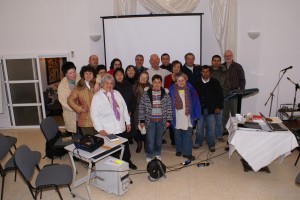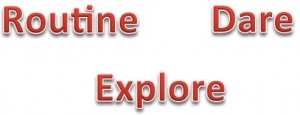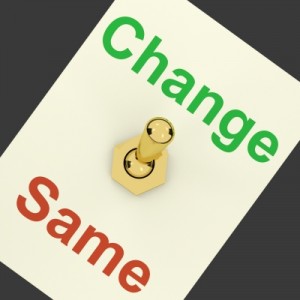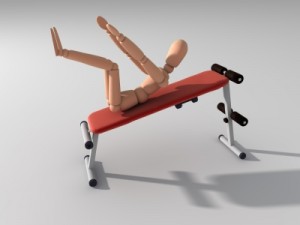I have been thinking and talking quite a bit about new routines. It all started earlier this year around resolution time. I have a visceral reaction to resolutions because I associate them with failure.
The concept of new routines has helped me immeasurably. Although my performance has been far from stellar, my attitude toward the whole process is quite different. If my new routine practices had been resolutions, they probably wouldn’t be in place right now.
I have talked about the necessary elements of change outlined in Switch, a wonderful book on change.
Lately I have been thinking a lot about the clear path forward; in the book, it’s the third ingredient necessary for change. Pathways are important. Imagine trying to drive across fields, rivers and the like without roads. Inefficient at best.
But sometimes what looks like a path can really be a rut. For me, a rut acts like a rail. I tend to disengage and simply go through the motions. Often it’s quite comfortable because it doesn’t require much thought or effort.
Ruts can be subtle, sometimes I don’t even realize I am in a rut, at least initially. I start to notice subtle changes don’t make any difference. Attempts at change are easily thwarted.
If you have ever been driving in a rut, you may notice that you no longer feel you are in control of the vehicle–it’s like this “tractor beam” has taken over and is pulling you along against your will.
In my experience subtle changes don’t work; a little nudge of the steering wheel doesn’t do much. If I want out, I have to “yank” the wheel.
I realize this may be an oversimplification of a more complex issue; however, sometimes we have to decide to make changes that are uncomfortable or require more effort than we would like in order to move out of our rut.
Now there may be times when a rut is a good thing (imagine driving down a road with six inches of unplowed snow); in this case, ruts are actually tracks that help you move along. The key is recognizing the difference and making the choice.
What’s your rut?





